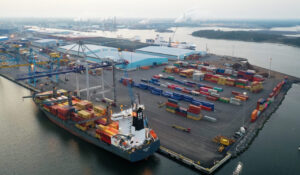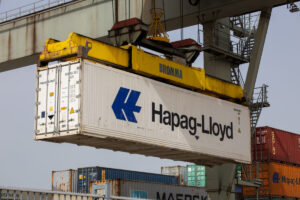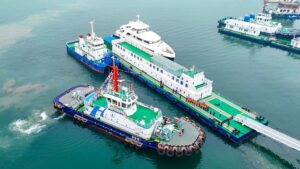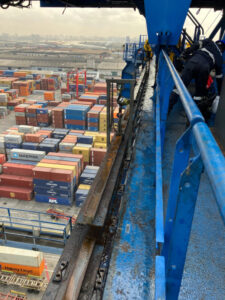The German ports Bremen and Bremerhaven have joined more the 80 companies, organizations and politicians in signing on to campaign to ban heavy fuel oil (HFO) from Arctic shipping.
The two twin ports, operated by Bremenports GmbH & Co. KG, are the fourth busiest container ports in Europe and the 16th biggest ports worldwide.
Robert Howe, CEO of Bremenports GmbH & Co. KG. said: “Bremenports is proud to sign up to the Arctic Commitment.
Heavy fuel oil has no place in Arctic shipping. We are calling on other ports to join us on calling on the IMO to enact a ban on its use in Arctic waters.
Sustainability is a central element in Bremenport’s strategy. We have implemented numerous projects under the label 'greenports', some of which have won international awards.
In order to reduce local air pollution, we will soon bring into service a LNG-powered barge for dredged material.
In addition, sustainability and environmental issues are integrated into bremenport’s public outreach.”
Read the “Challenges in Arctic Port Development” technical paper for more information on the impact and challenges of industry in the Arctic
The campaign was launched at the Arctic Frontiers conference in January 2017 by the Clean Arctic Alliance, a coalition of non-governmental organizations, and expedition cruise ship operator Hurtigruten.
The Arctic commitment aims to protect Arctic communities and ecosystems from risks and damages cause by heavy fuel oil use, and calls for the International Maritime Organization (IMO) to ban its use as marine fuel in Arctic shipping.
A ban on heavy fuel oil has been in place in Antarctic waters since 2011.
Dr Sian Prior, lead advisor to the Clean Arctic Alliance commented: “With the IMO’s MEPC72 meeting coming up in April, we are encouraged to see major maritime operators like bremenports supporting the banning of the use and carriage of HFO as ship fuel in Arctic waters.
A ban is the simplest and most effective mechanism for mitigating the consequences of a spill and reducing harmful emissions.
With many countries – including Germany – now backing a ban on HFO from the Arctic, we hope to see other ports join Bremenports in becoming Arctic Commitment signatories, to help build understanding of the HFO problem, and increase the momentum to end its use by Arctic shipping”.








